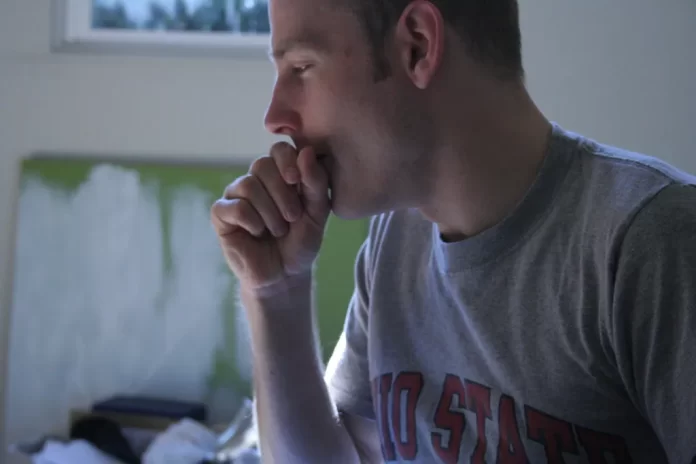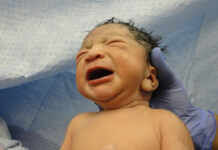Image Source: flickr.com
The recent rise in COVID cases in China has alarmed the world. Various reports paint poignant pictures of overburdened hospitals and crematoria and highlight the declining stock of medicines. This sudden upsurge in cases has been attributed to the Omicron BF.7 variant of the coronavirus.
Amid the growing concerns, many other countries including India have reported the presence of the Omicron BF.7 variant among the masses. This has led to speculations and questions about another COVID wave in India.
Table of Contents
About Omicron BF.7 variant
The Omicron lineage of SARS-CoV-2 has several sub-variants. Over 500 variants are already making rounds among the global population. The BF.7 variant is a sub-lineage of the Omicron BA.5 sub-variant, specifically designated as BA.5.2.1.7. According to the World Health Organization (WHO), BF.7 is one of the variants contributing to the current COVID-19 situation in China.
This variant is found to have a short incubation period and high transmissibility. Additionally, studies have shown that it may be capable of reinfecting individuals who have previously had COVID-19 or have been vaccinated. These findings highlight the importance of ongoing monitoring and control efforts.
Is Omicron BF.7 more contagious than others?
Omicron BF.7 is highly infectious, and its rapid spread can be attributed to its R0 value, which measures a virus’s contagiousness. The R0 value for BF.7 is 18, indicating that each infected person has the potential to infect nearly 18 others.
Research published in the journal “Cell Host and Microbe” has revealed that BF.7 has 4.4-fold higher “stronger neutralisation resistance” compared to the original COVID-19 virus, indicating that the antibodies generated by current vaccines may not be effective against this variant.
This increased resistance to neutralisation is due to a specific mutation, “R346T,” found in the spike protein of the BF.7 variant. This mutation is also present in the BA.5 variant. It is thought to strengthen the virus’s ability to evade neutralising antibodies produced by previous infections or vaccinations, potentially increasing the risk of reinfection.
Understanding the symptoms of COVID-19
The most common symptoms of COVID-19 are:
- Fever or chills
- Cough
- Shortness of breath or difficulty breathing
- Fatigue
- Muscle or body aches
- Headache
- Loss of taste or smell
- Sore throat
- Congestion or runny nose
- Nausea or vomiting
Note that some people with COVID-19 may have no symptoms at all, while others may have only mild symptoms. It is also possible that symptoms will appear a few days after being exposed to the virus.
How can the COVID-19 Omicron BF.7 variant be kept from spreading?
- Mask-wearing:
Wear a mask in public spaces, especially in crowded areas, to reduce the spread of respiratory droplets.
- Respiratory etiquette:
Cover your mouth and nose with a tissue when coughing or sneezing, and dispose of used tissues immediately. In case there are no tissues available, cough or sneeze into your elbow.
- Cleaning and disinfection:
Regularly clean and disinfect frequently touched surfaces and objects such as door handles, light switches, and electronic devices. Several disinfectants on the market can help you with this.
- Physical distancing:
Maintain a distance of at least 6 feet from others to reduce the chance of respiratory droplets spreading from person to person.
- Testing:
Get tested regularly if you have symptoms of COVID-19 or have been in close contact with a confirmed case. Testing is also critical for those who are asymptomatic but are at high risk of exposure such as pregnant women or diabetics.
How health insurance can help fight the Omicron BF.7 variant?
The Insurance Regulatory Development Authority of India (IRDAI) launched the Corona Kavach and Rakshak policies in response to the health concerns associated with the various coronavirus variants. The former is a family health insurance plan in which you can include your dependent children (up to two) and your spouse. It is an indemnity plan, and a minimum of 24 hours of hospitalisation due to COVID infection is required to receive reimbursement.
On the other hand, Corona Rakshak is a type of individual health insurance that provides a fixed benefit. The maximum sum insured under this plan is Rs 2,50,000.
Final Words
When dealing with COVID-19 Omicron BF.7, you should wear masks, wash your hands frequently, disinfect frequently touched surfaces, and, if possible, maintain social distancing. You should always think about getting health insurance so that if you become infected with the virus, you do not have to postpone treatment due to financial constraints.








